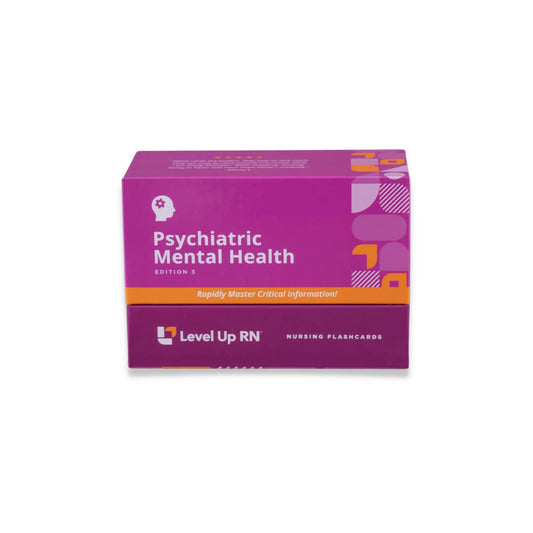Psychiatric Mental Health, part 32: Disorders - Conduct Disorder
Conduct disorder and oppositional defiant disorder. The characteristics of each disorder, risk factors associated with conduct disorder, and treatment of conduct disorder.
Full Transcript: Psychiatric Mental Health, part 32: Disorders - Conduct Disorder
Full Transcript: Psychiatric Mental Health, part 32: Disorders - Conduct Disorder
Hi, I'm Cathy with Level Up RN. In this brief video, I will be talking about conduct disorder. And at the end of the video, I'm going to give you guys a little quiz to test your knowledge of some of the key facts I'll be covering in this video. And as always, I will be following along with our Level Up RN flashcards. If you have our flashcards, then definitely pull out your flashcard on conduct disorder and follow along with me. Conduct disorder is a spectrum of disorders characterized by repetitive and aggressive behavior that violates the rights of others. So oppositional defiant disorder or ODD is the precursor to conduct disorder. A child with ODD will persistently act out, causing issues at school and at home. They are often angry. They argue with adults and refuse to follow rules. They also deliberately annoy people and blame others for their mistakes or misbehavior.
With conduct disorder, the individual will take it a step further. So conduct disorder is characterized by aggressive behavior, such as fighting, bullying, and being cruel to other people, as well as animals. Individuals with conduct disorder will often lie, steal, destroy property, and run away from home. Risk factors that make it more likely that a child will develop conduct disorder include psychiatric comorbidities, such as ADHD, depression, as well as bipolar disorder. Other risk factors include learning disabilities, as well as living in a dysfunctional family environment. Treatment of conduct disorder includes anger management training, talk therapy, as well as medications to treat psychiatric comorbidities. In terms of parental guidance, setting clear and reasonable boundaries is important. We also should advise parents to provide consistent discipline and to reward positive behaviors.
All right. It's quiz time, and I've got three questions for you. Question number one. Is animal cruelty, theft, and destruction of property indicative of oppositional defiant disorder or conduct disorder? The answer is conduct disorder. Question number two. A child with ADHD is at higher risk for developing conduct disorder. True or false? The answer is true. Question number three. Loosely defined boundaries are beneficial for a child with conduct disorder. True or false? The answer is false. So clearly defined, consistent boundaries and limits are recommended for a child with conduct disorder. All right. That's it for this video. Thank you so much for watching and good luck with studying.


